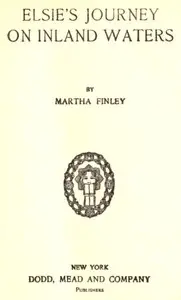"Letters from the Cape" by Lady Lucie Duff Gordon is a collection of personal letters written in the mid-19th century, detailing the author's experiences and observations during her time in South Africa. The correspondence offers a unique glimpse into the social dynamics and cultural interactions of the period, reflecting Duff Gordon's keen insights and engaging narrative style. Through her letters, she explores her connections with the diverse communities she encounters, including the Dutch, Malay, and indigenous peoples. At the start of the work, the editor's foreword sets the stage for Lady Duff Gordon's journey to the Cape in search of health. The opening letters chronicle her voyage, beginning with challenging conditions at sea, and transition into her early impressions of life in South Africa. She provides vivid descriptions of her interactions with fellow travelers, the crew of her ship, and her first experiences onshore, particularly her observations of the characters and settings in Caledon and Simon’s Bay. Through her observations, Duff Gordon conveys her thoughts on cultural attitudes, human relationships, and the beauty of the landscapes surrounding her, giving readers a rich and intimate perspective on her journey. (This is an automatically generated summary.)

Letters from the Cape
By Lucie Duff Gordon
"Letters from the Cape" by Lady Lucie Duff Gordon is a collection of personal letters written in the mid-19th century, detailing the author's experien...
Lucie, Lady Duff-Gordon was an English author and translator who wrote as Lucie Gordon. She is best known for her Letters from Egypt, 1863–1865 (1865) and Last Letters from Egypt (1875), most of which are addressed to her husband, Alexander Duff-Gordon, and her mother, Sarah Austin. Having moved in prominent literary circles in London, she contracted tuberculosis and travelled in 1861 to South Africa for health reasons. She travelled on to Egypt in 1862 where she settled in Luxor, learnt Arabic, and wrote many letters about Egyptian culture, religion, and customs. Her letters are notable for humour, outrage at the ruling Ottomans, and many personal stories from the people around her.














